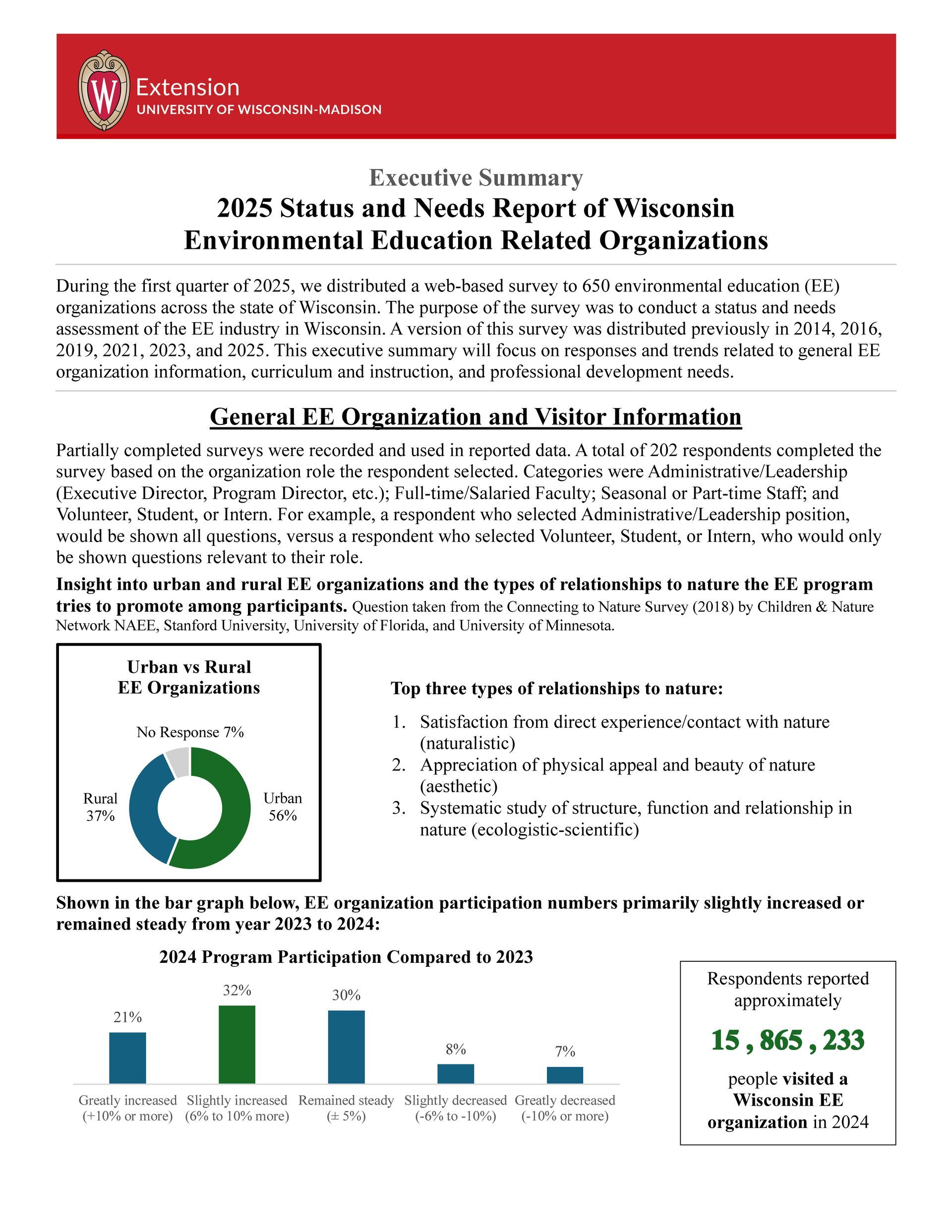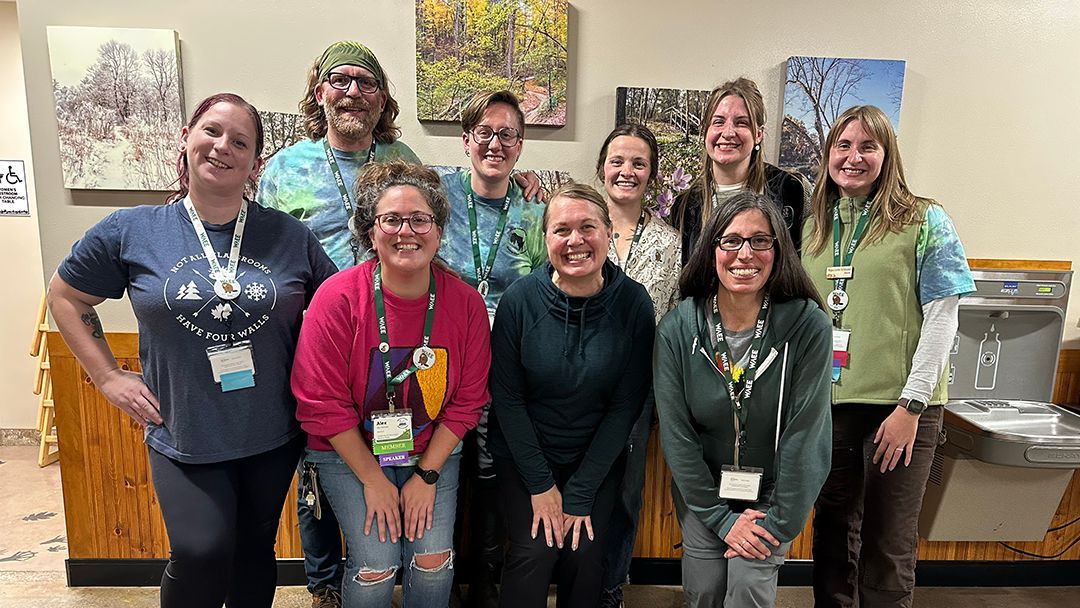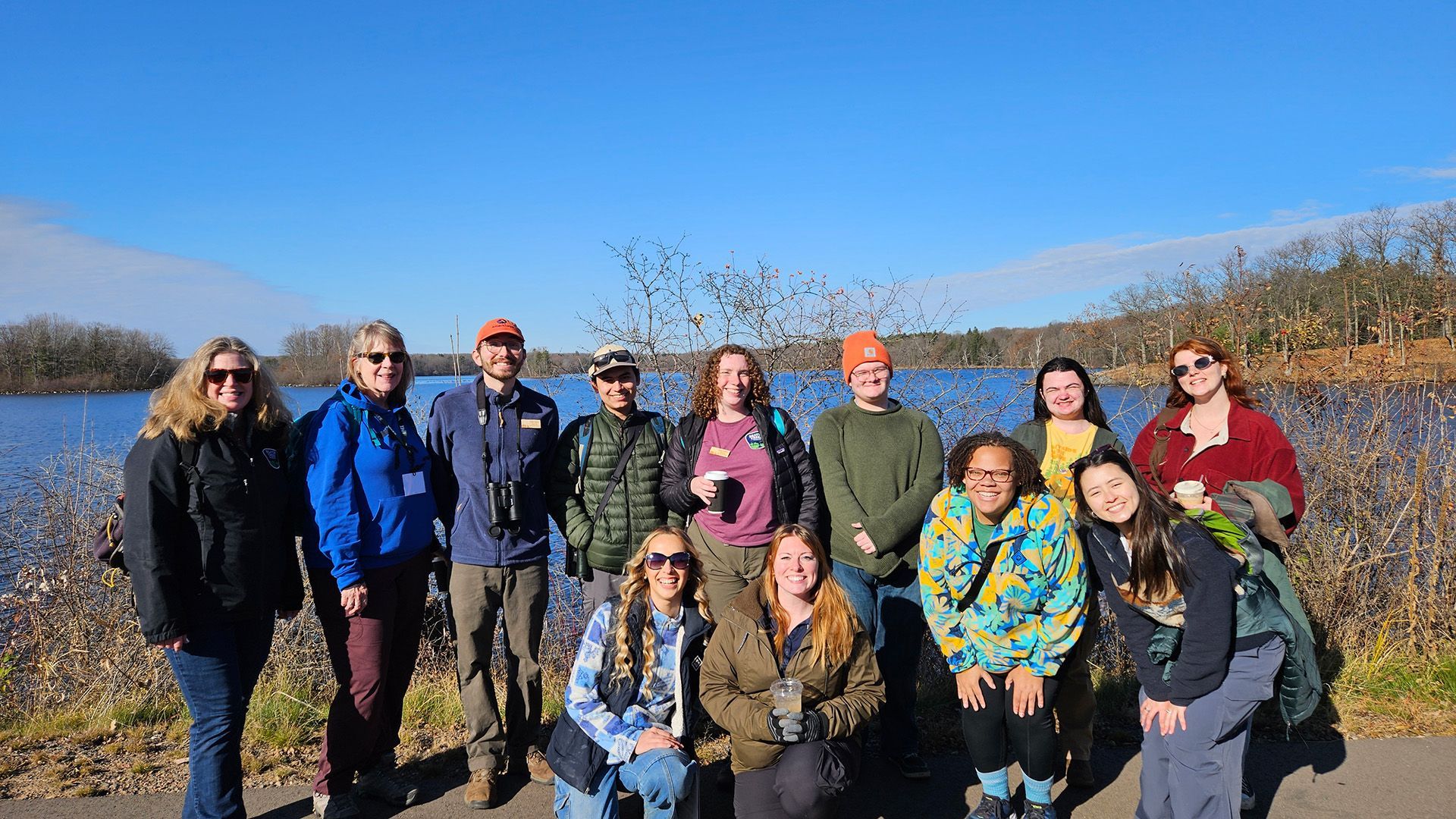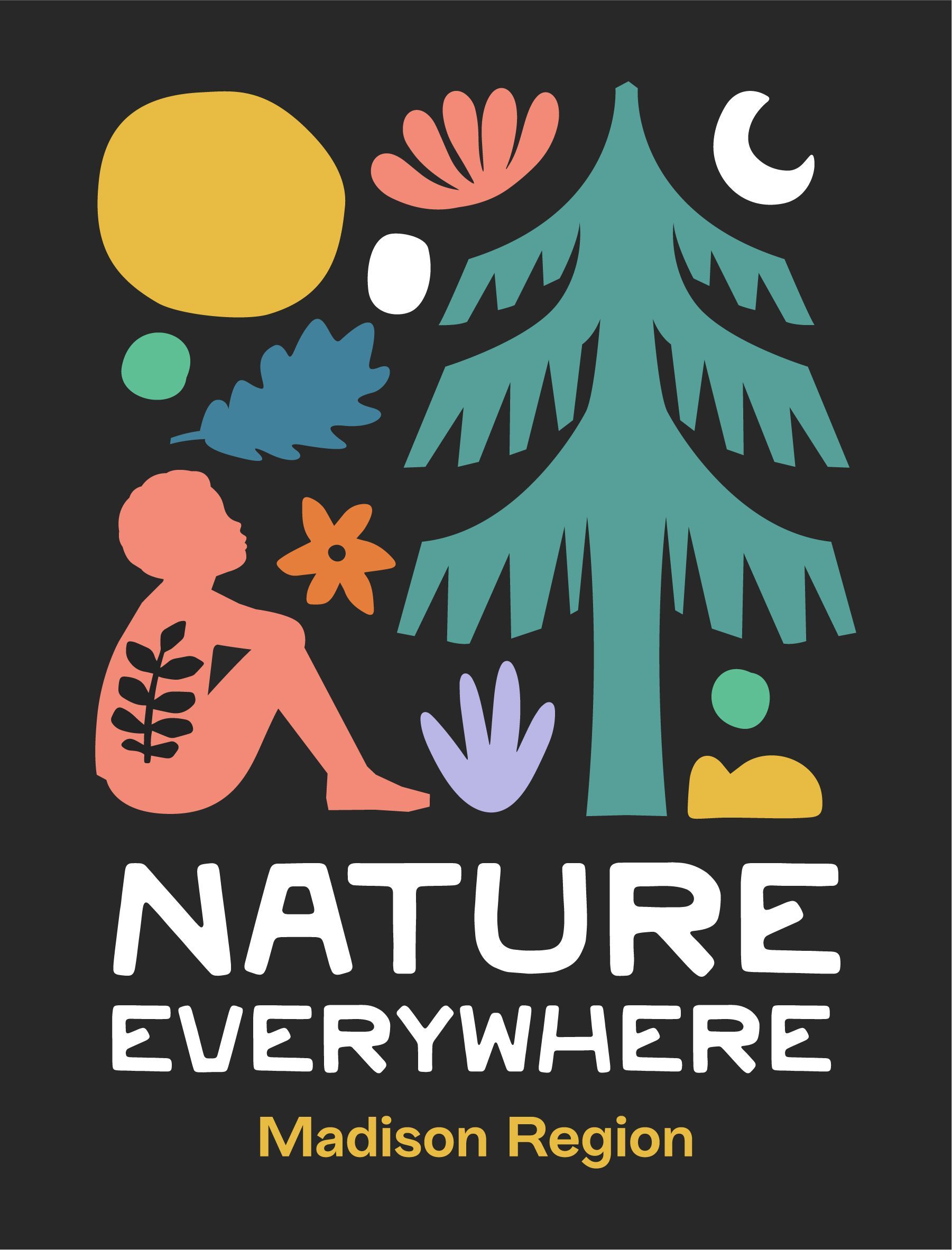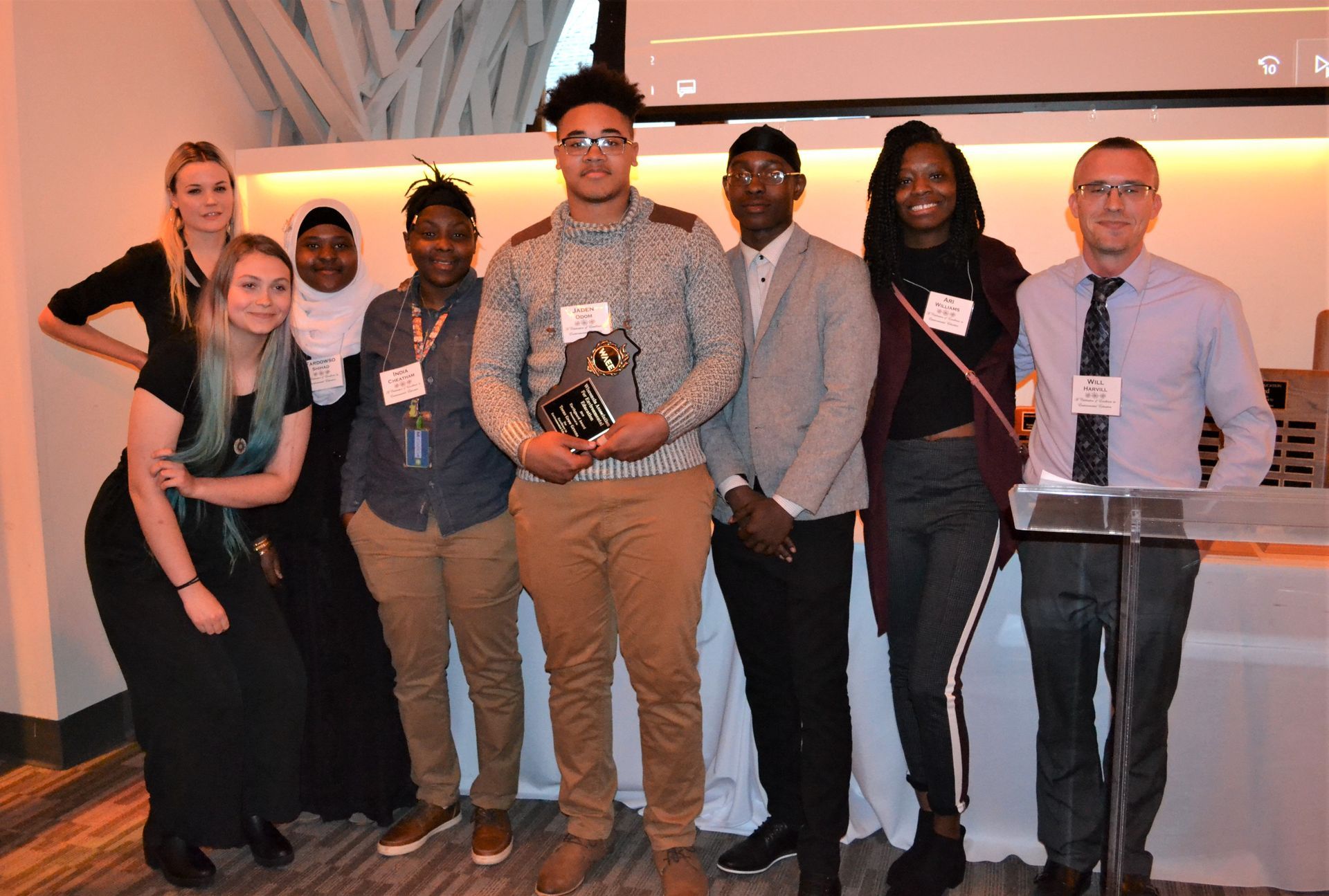What is the status of EE organizations in Wisconsin?
2023 Status and Needs Survey
Status and Needs of Environmental Education Related Organizations serving Wisconsin populations through diversity, equity, justice, inclusion initiatives. To view the questions from the 2023 survey, please click here.
2021 Status and Needs Survey
Status and Needs of Environmental Education Related Organizations in Wisconsin. To view the questions from the 2021 survey, please click here.
2019 Status and Needs Survey
In 2019, Upham Woods Outdoor Learning Center administered a survey to over 700 environmental education organizations around the state. By the end of the survey period, 193 people responded allowing us to gain valuable insight into the field’s progress and direction since the survey’s first iteration in 2015. We are excited to share those results with you.
This effort was supported by UW Division of Extension, WAEE, and the Wisconsin Center for Environmental Education.
Key finding of the survey include:
- Environmental education employs over 3,000 people in the state
- Environmental education generates between $40 million and $72 million in direct economic activity annually, and
- Respondents collectively manage 165,466 acres of land.
If anything, this report demonstrated to us the collective impact and power this industry has to create change.
2016 Status and Needs Survey
In the winter of 2015-16 a digital survey was distributed to environmental education organization leaders across the state of Wisconsin. The goal of this survey was to investigate the current status of environmental education (EE) throughout Wisconsin and to help identify the different needs of these organizations in various focus areas. The information that was collected is being used to facilitate communication, collaboration, professional development, and outreach services, and to increase the quality and quantity of EE in Wisconsin.
A select summary of significant survey results are illustrated in the two-page .pdf below, or you can download the full report (48 pages).
This survey was supported in part by a Capacity Building grant from the North American Association for Environmental Education and was a collaborative project from University of Wisconsin-Extension, Wisconsin Center for Environmental Education, Wisconsin Association for Environmental Education & the 2015 Wisconsin Environmental Education Consortium
Below are the top professional development needs as defined by the state-wide survey:
Top 7 Needs – Organization Skills Areas
- Accessibility and Inclusion of People with Disabilities (67%)
- Grant Writing (53.2%)
- Fundraising (51.1%)
- Digital Presence/Website/Facebook/Twitter/etc (46.8%)
- Volunteer Management (46.8%)
- Exhibit Development (43.6%)
- Public Relations/Marketing (41.5%)
Top 7 Needs – Environmental Education Subject Areas
- Technology Use in Outdoor Education (67.3%)
- Using STEM as a Context for EE (or E-STEM) (61.4%)
- Community-based Learning (49.5%)
- Understanding School Initiatives, Speaking School Language (45.5%)
- Birds (42.6%)
- Plants (41.6%)
- Community Action/Service-Learning (41.6%)
2014 Status and Needs Survey
Abstract 160 Wisconsin environmental education (EE) related organizations responded to the 2014 status and needs online survey. The survey and report of findings includes general information about the organizations, trends in participation, land management, use of technology, program evaluation, and professional development needs and offerings. EE related organizations in Wisconsin serve an average number of 10,251 program participants. These organizations have extensive reach and impact across the state. Findings illustrate how and why some organizations have been more successful than others. EE related organizations have identified needs in the areas of technical and on-the-ground assistance with land management, use of technology to enhance environmental and outdoor education, and professional development in many organizational management skills and EE subject areas. Assistance is also needed in program evaluation along with coordination or use of standardized evaluation methods across organizations. Findings and recommendations included in this report can be used to increase the operational capacities and impact of EE related organizations in Wisconsin.
Below are the top 10 professional development needs as defined by the state-wide survey:
Top 10 Needs – Organization Skills
- Use of Technology to Enhance Environmental Education
- Grant Writing
- Accessibility & Inclusion of People with Disabilities
- Fundraising
- Public Relations/Marketing
- Exhibit Development
- Digital presence/Website/Facebook/Twitter/etc.
- Volunteer Management
- Budgeting/Finances
- Non-profit Management/Working with Executive Boards
Top 10 Needs – Environmental Education Content Areas
- Current Environmental Issues
- Sustainable Design/Green Technologies or Buildings
- Community Action/Service Learning
- Energy Efficiency
- Land Use/Conservation
- Sustainability/Resource Consumption
- Drinking Water/Waste Water
- Gardening/Agriculture/Soils
- Birds
- Water Quality/Aquatic Ecology/Fish or Plants (These two options ranked the same)
2025 Results from the Status and Needs Survey Now Available
Wisconsin State-Wide Environmental Education Survey
Since 2014, a research team led by Dr. Justin Hougham has administered surveys to over 700 environmental organizations around the state, and included some regional organizations beyond the state who serve a Wisconsin audience. Visit the website
Study of the Status and Needs of Programming and Training in Environmental Education Organizations in Wisconsin
Background: Environmental education (EE) organizations are critical in promoting ecological literacy and sustainability. As the field evolves, ongoing assessment of programming and staff training needs is essential to ensure relevance and impact.
Purpose: This study aimed to evaluate the current status of EE programming and identify professional development needs across Wisconsin-based EE organizations.
Methodology/Approach: In early 2025, a web-based survey was distributed to 650 EE organizations statewide. A total of 202 respondents completed the survey based on the organization role the respondent selected: Administrative/Leadership; Full-time/Salaried Faculty; Seasonal or Part-time Staff; and Volunteer, Student, or Intern.
To view the questions from the 2025 survey, please click here
Findings: The study offered insights into urban and rural EE organizations, particularly the types of nature relationships they aim to promote. The most cited was “naturalistic”–satisfaction from direct experience with nature. Subject area content needs were highest in technical skills, including AI, GIS, and innovative techniques. The top organizational skill in need of development was community engagement. Interpretive training, conservation, and education were listed as the most sought training.
Implications: These findings highlight the importance of targeted professional development to support EE approaches across varying community contexts.

